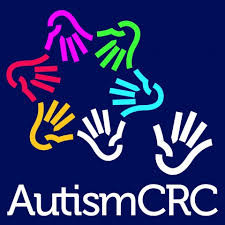
The diagnostic process for children, adolescents and adults referred for assessment of autism spectrum disorder in Australia: National guideline draft for community consultation
Background
There is currently no consistent process across Australia for how an individual is assessed for a diagnosis of autism spectrum disorder (ASD). This inconsistency has led to uneven service provision across the Australian states and territories, along with confusion within the community about the diagnostic process. The aim of this guideline is to define a diagnostic assessment process that is acceptable to consumers, feasible to conduct, effective in delivering accurate diagnostic decisions, and comprehensive in guiding future clinical management.
The guideline was developed through a 12-month process that involved a series of research and consultative activities, including a workshop in each state of Australia. The development process was led by a small team of senior clinicians and researchers, along with a Steering Committee made up of representatives from the major professional and consumer organisations. The guideline was developed and is published by Autism CRC and we acknowledge the financial support of the National Disability Insurance Agency. Summary information about the guideline development process can be found in the main guideline or detailed information about the guideline development process can be found in the Technical Report.
The guideline outlines a step-by-step process for conducting an ASD assessment from the time of referral until the assessment results are shared in a written report. The 76 recommendations included in the guideline were based on the strength of identified research evidence and feedback from the consultative activities. Each recommendation has a corresponding Evidence Table that presents the research evidence and consultative feedback on which the recommendation was based.
Key aspects of the guideline include:
- An ‘ASD assessment’ being defined as both a Diagnostic Evaluation (Does the individual meet criteria for ASD?) and a Functional and Support Needs Assessment (What are the key strengths and challenges that inform future clinical management?).
- A ‘tiered process’ of assessment, which will facilitate accurate and efficient assessment for the full range of ASD presentations
- Health professional(s) performing the Diagnostic Evaluation (the ‘diagnostician’) must have both qualifications in a defined clinical profession, and defined knowledge and experience in working with individuals with ASD
- A description of the settings in which the behaviours of the individual being assessed must be observed.
- Information about how a Diagnostic Evaluation can be adapted for individuals in regional or remote location.
- The description of a range of additional considerations that are known to have a bearing on the ASD Diagnostic Evaluation, including the age, gender, intellectual capacity and cultural/linguistic background of the individual being assessed, as well as differential diagnoses and co-occurring conditions.
- Resources to aid health professionals, including decision-making guides, templates for written reports completed as part of the ASD assessment, as well as case studies to demonstrate the proposed ASD assessment process
- An accompanying technical report provides detailed information on the guideline development process and the evidence supporting the recommendations made in this guideline.
Available resources
- Download the full guideline
- Request a copy of the Technical Report
- Request a copy of the Evidence Tables
Web resources
- Download the referral form
- Download the medical evaluation form
- Download the assessment report templates
- Download the case studies which have been provided to illustrate the diagnostic process outlined in the guideline, and are representative of the full diversity of individuals who may present for an ASD assessment.
Provide feedback (submission)
An important part of the guideline development process is to seek feedback from the public, in particular the people who will be directly impacted by the guideline. This includes (but is not limited to) autistic individuals and their caregivers/support people, professionals involved in ASD assessment and service delivery, and policy makers/funders. Written feedback can be provided via:
- Online through our submission portal
- Post to the Project Coordinator, Dr Kiah Evans, Telethon Kids Institute, PO Box 855, West Perth WA 6872
Contact details
If you have any further questions, please contact the guideline development team on 08 9489 7662 or email kiah.evans@telethonkids.org.au.